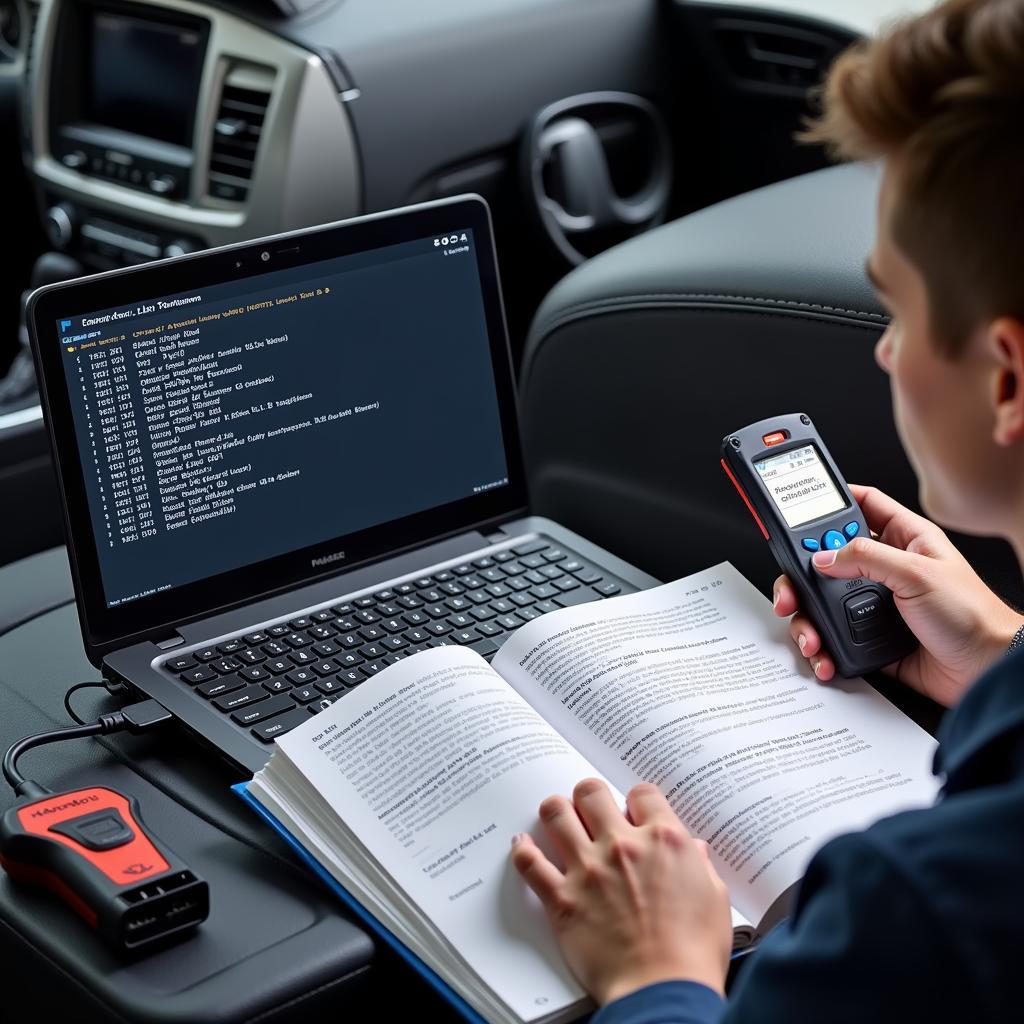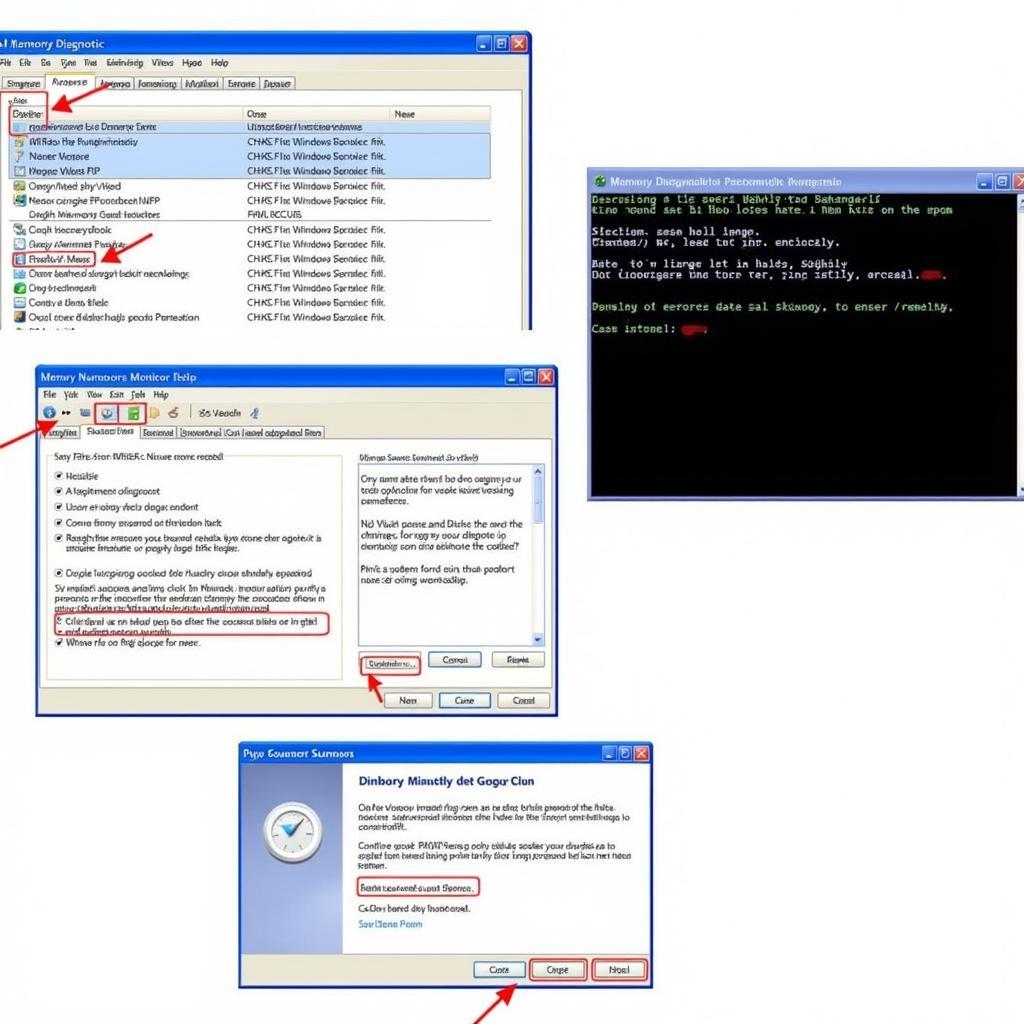The elusive “Ipod Shuffle Diagnostic Tool” – a phrase that sparks curiosity and confusion among car owners and technicians alike. While the iPod Shuffle itself is a relic of the past, the idea of using it as a diagnostic tool for cars seems far-fetched. This article delves into the reality behind this intriguing search term and explores practical, modern car diagnostic solutions.
Understanding the “iPod Shuffle Diagnostic Tool” Search
Why would someone search for an “iPod shuffle diagnostic tool”? Perhaps they misheard a term, are looking for a low-cost DIY solution, or stumbled upon outdated information. Regardless, the search reflects a need for affordable and accessible car diagnostics. Let’s address some common misconceptions and explore the real tools available.
Is There Actually an iPod Shuffle Diagnostic Tool?
No, there is no legitimate diagnostic tool that utilizes an iPod Shuffle. The architecture of a car’s onboard computer system is vastly different from that of a simple music player. Connecting an iPod Shuffle to your car’s OBD-II port will not provide any useful information.
What People Are Really Looking For
When searching for an “iPod shuffle diagnostic tool,” users are likely looking for an inexpensive way to diagnose car problems. They may be experiencing warning lights, performance issues, or simply want to monitor their vehicle’s health. Fortunately, there are many affordable and effective diagnostic tools available.
Modern Car Diagnostic Tools
Today’s diagnostic tools range from simple code readers to sophisticated professional scanners. These tools offer a variety of features, including:
- Reading and clearing diagnostic trouble codes (DTCs): Identify the source of warning lights and other issues.
- Viewing live data streams: Monitor real-time sensor readings to diagnose complex problems.
- Performing actuator tests: Verify the functionality of various components.
- Accessing advanced functions: Depending on the tool, you can perform tasks like coding, programming, and bi-directional control.
Choosing the Right Diagnostic Tool
The best diagnostic tool for you depends on your needs and budget. A basic code reader is sufficient for DIY enthusiasts who want to check and clear codes. For more in-depth diagnostics and advanced features, a professional-grade scanner is necessary.
“Investing in a reliable diagnostic tool can save you time and money in the long run,” says automotive expert, David Miller, ASE Master Technician. “It empowers you to understand your vehicle’s health and make informed repair decisions.”
Using a Diagnostic Tool Effectively
Using a diagnostic tool is generally straightforward. Locate your car’s OBD-II port (usually under the dashboard), connect the tool, and follow the on-screen instructions. Remember to consult your vehicle’s repair manual for specific procedures and interpretations.
“Don’t be intimidated by diagnostic tools,” advises Sarah Chen, Automotive Electronics Specialist. “They are powerful tools that can put you in control of your car’s maintenance.”
Beyond Basic Diagnostics
While a diagnostic tool is essential for identifying problems, it’s crucial to remember that it’s just one piece of the puzzle. Proper diagnosis requires a combination of tools, knowledge, and experience.
Conclusion
While an “iPod shuffle diagnostic tool” doesn’t exist, the search for it highlights the need for accessible and affordable car diagnostics. Modern OBD-II scanners provide a powerful solution for understanding and addressing car problems, empowering both car owners and professionals. For expert advice and a wide selection of diagnostic tools, connect with ScanToolUS at +1 (641) 206-8880 or visit our office at 1615 S Laramie Ave, Cicero, IL 60804, USA. We’re here to help you keep your car running smoothly.
FAQ:
- What is an OBD-II port?
- How do I find my car’s OBD-II port?
- What is a DTC?
- Can I fix my car by just clearing the codes?
- What is the difference between a code reader and a scan tool?
- Where can I buy a reliable car diagnostic tool?
- What should I do if I can’t diagnose the problem with a diagnostic tool?


